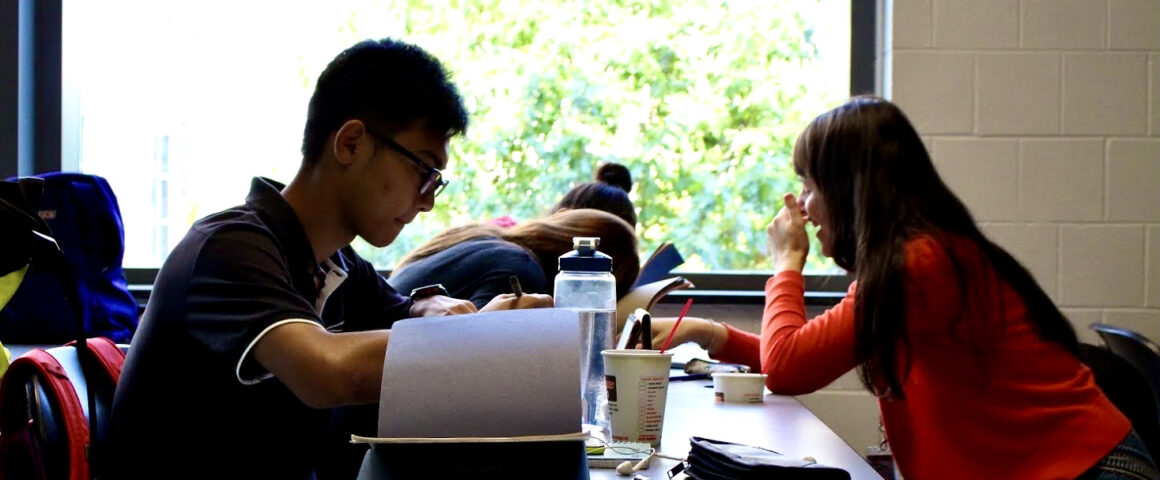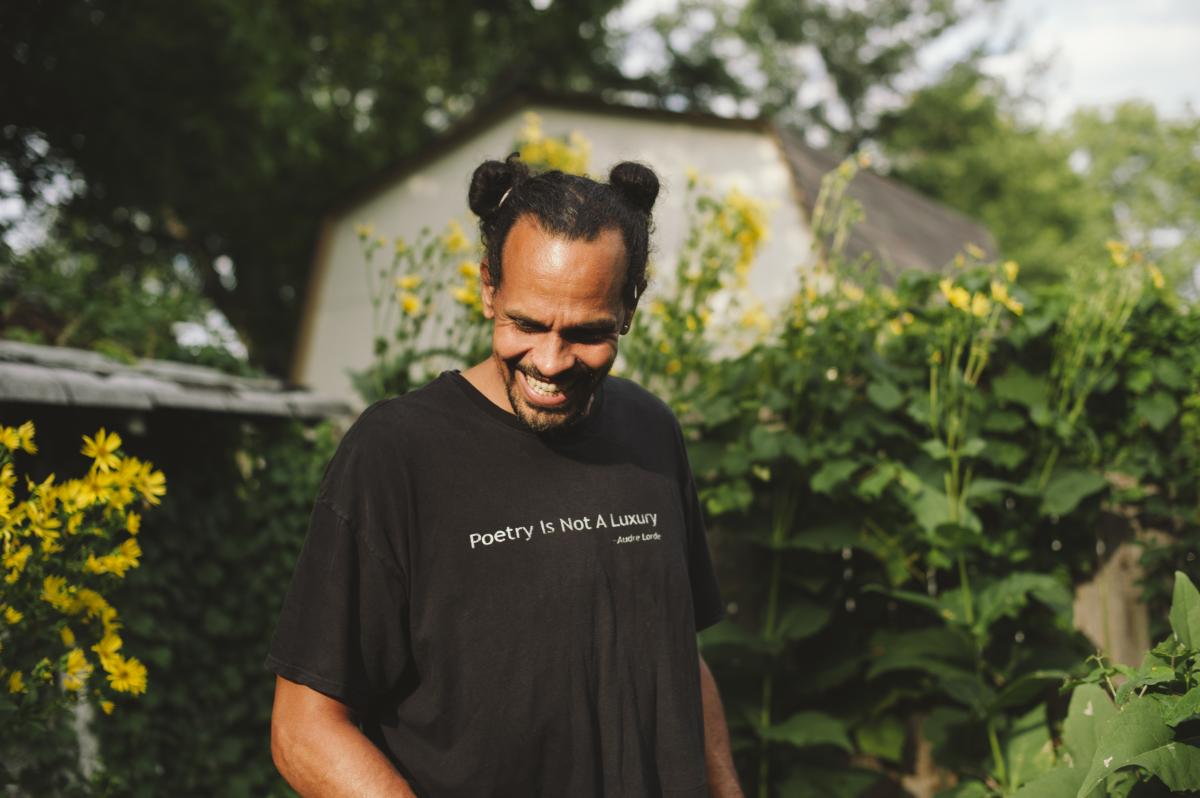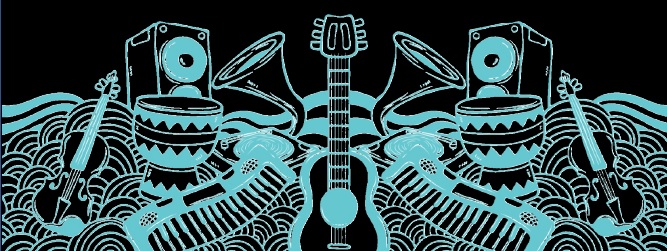ACT I
When my sixth-grade teacher Mrs. Fine assigned an essay on Guy de Maupassant’s short story “The Necklace,” I panicked. I didn’t understand the essay prompt or know how to structure my response to her questions. I couldn’t think the way Mrs. Fine wanted me to think. I wrote in stories and dialogues, not thesis statements. I spoke in class discussions and through hand gestures. I wrote in ways that weren’t quantifiable; ways that couldn’t be stacked or measured. If Mrs. Fine wanted an essay, I was doomed.
After school, I came home and flopped onto the couch. “What’s wrong, Juju?” my mother asked. “I have to write an essay, Mom. I can’t write essays.”
“It’s okay,” my mother said. “I’ll help you.”
But I wasn’t cut out for this. I wasn’t meant to be a writer, no matter how much I wanted to be. I got up and paced back and forth in the hallway for twenty minutes until my mom returned from the kitchen and reached out her hand. “I’ll help you,” she said. “Come upstairs.”
We sat together at the desktop computer. I slumped down in the stiff, gray chair. It squeaked when I pushed back. Mom, sitting next to me, began dictating, gesturing for me to type as she spoke. “This is a story about the deceptiveness of wealth and class,” she said, and I wrote. “Not everything is as it appears.” Whenever my mom stopped talking and encouraged me to continue on my own, I froze. I cried. I begged her to go on. She said such smart things; things I never would have thought of myself.
You’re not cut out for this, I kept thinking. You’ll just have to give up the idea that you can be a writer. Clearly, you can’t. When Mom finished dictating the essay to me, God took his foot off my chest. I could breathe again. It was over. The pain was over. I had something on paper that looked and sounded like an essay, not a story.
A few weeks later, when Mrs. Fine finished grading our papers, she handed them back in class. “Judith,” she called out, giving me a pinched, angry look, waving my paper in the air. In a voice loud enough for the whole class to hear, she asked, “Who helped you with this essay, Judith?” The room fell quiet. Everyone turned to look at me, standing in the corner at the pencil sharpener, not at my desk, hoping to be invisible. My whole body went numb. My lungs filled with water. Waves of shame crashed over me. With whatever breath I had left, I answered, “My mom.”
Mrs. Fine handed me my paper without another word. I don’t remember being disciplined, or even what grade I received on the assignment. I just remember that I couldn’t stop thinking about the laser beam look she’d given me as she handed back my essay. “I’m disappointed in you,” that look said.
ACT II
In 8th grade, I married Leonardo Di Caprio.
My teacher, Mrs. Scarborough, introduced me to my first ever Shakespeare play: Romeo and Juliet. With all the Elizabethan “thees” and “thous,” I barely understood anything, but Mrs. Scarborough guided us through the story, page by page, ensuring that all of her students understood the arcane language. Once I got the hang of it, Shakespeare’s language felt accessible to me. I didn’t need Mrs. Scarborough’s help anymore.
Mrs. Scarborough also asked each of us to choose a monologue from the play to perform for the class the following week. I chose a soliloquy from Act IV, Scene 3, when Juliet contemplates drinking poison and faking her death to escape her arranged marriage to Paris, and secretly reunite with her beloved Romeo. Studying the soliloquy, I imagined a beautiful boy, tall and goyish (even though I’m Jewish), with wavy blond hair like Leonardo DiCaprio; a Romeo willing to die for me. I pictured myself as Juliet, wearing a long, flowing nightgown, pacing, leaning over the balcony, calling to the moon, “I have need of many orisons to move the heavens to smile upon my state. Which, well thou knowest, is cross and full of sin!”
For the next week, sitting on the gray carpet of the dark basement in my parents’ house in suburban Pennsylvania, I bellowed my lines at the wall, “Romeo, Romeo, Romeo!” On the day of my monologue performance for Mrs. Scarborough and our class, I felt I really had become Juliet.
I walked quietly, with pride, to the front of the class, as if it were a real stage, with heavy black curtains, the stage light beaming on me. I knelt on the faded blue carpet on one knee and looked out the window at the parking lot. A row of shiny butterfly clips dotted my forehead. I blushed and batted my lashes as I delivered my lines, thinking of Leonardo DiCaprio and how much we loved each other. “God knows when we shall meet again. I have a faint cold fear thrills through my veins, that almost freezes up the heat of life.” The room was silent. As I neared the end, I stretched my arms out in the air, as if reaching out for someone, and uttered my last words, “Romeo, Romeo, Romeo! Here’s a drink — I drink to thee.”
Everyone stood up clapping and cheering. Mrs. Scarborough beamed at me. She whistled and shouted, “Bravo! Bravo!”
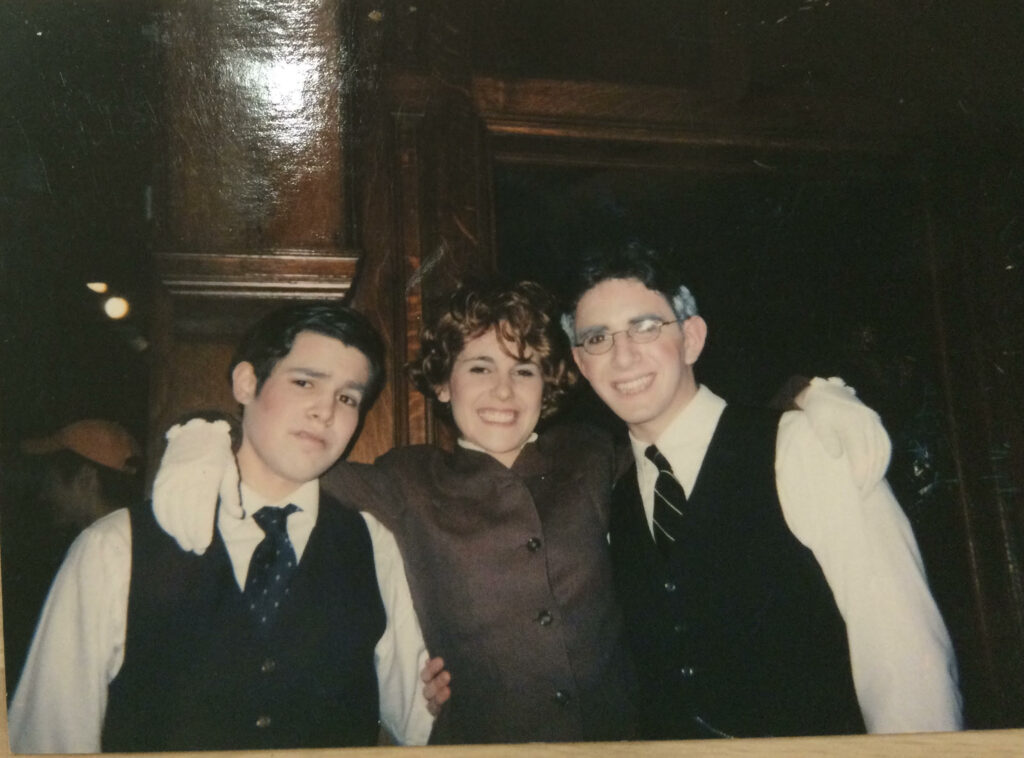
But then, a few days later, Mrs. Scarborough assigned an essay. I froze. As I watched Mrs. Scarborough moving from desk to desk, placing the assignment sheets in front of each student, my body trembled. My heart dropped through the floor. I looked at the other students, certain that they knew I’d mess this up. I’d given a performance they all loved, and surely they expected me to write a good paper too. But I knew the truth: I was going to fail. When Mrs. Scarborough passed by my desk, she smiled. “I’m excited to see what you come up with, Judy,” she said. “Seems like you really loved the play.” I smiled back at her.
“Thank you,” I said, but on the inside, I was gasping for air, just as I had done in Mrs. Fine’s sixth-grade class, and any time thereafter when I’d had to write an essay.
After school, I hurried home, locked my bedroom door, curled up on my bed like a pill bug, and cried. I read and reread the scenes over and over. Pale, staring into space, I slumped in the gray desk chair. In the scene, pining for her Romeo, in despair, Juliet called for her nurse. “Nurse!” I said out loud, copying Juliet in the scene as if I could summon help.
My mother came to comfort me. “You can do it, Juju. I know you can,” she said. But I couldn’t. Mom attempted to coach me. “What do you think is happening in the scene? What are your ideas?” I had none. I kept thinking there must be a right answer. I knew my answer had to be smart, but the idea that I could even put my thoughts into words felt overwhelming. “I don’t know, Mom,” I said.
My mother stayed with me, encouraging me to get the words on the page, but when we were done, I still had barely a paragraph written, so I gave up and went to bed.
I stared at the wallpaper in my bedroom, the same blue and white striped wallpaper with flowered border I’d had since my parents brought me home from the hospital. I lay awake, looking at the Leonardo Di Caprio poster on my wall, my eyes hot from crying.
But then, I had an idea. I would write something else. Not an essay. I’d write what I wanted to write: a story, a movement, a wave of words, an expression. I knew that I’d be taking a risk, but I felt safe enough to try because Mrs. Scarborough liked my soliloquy performance. I jumped out of bed, ran to my desk, and ripped a piece of paper from my notebook.
The words on the page didn’t look like an essay. Not at all. My thoughts were there, my ideas were there, but this time I played around. I wrote backward and forwards. I wrote in successions: “Romeo Romeo Romeo.” And I didn’t care. I didn’t care that it didn’t make sense. I didn’t care that I didn’t have a thesis statement. I played. And I had fun.
But when it came time to hand in the “essay,” I panicked. I hadn’t done exactly what the assignment required. When I handed my paper to Mrs. Scarborough, speaking fast, awkwardly, I said, “I did do something, sort of. I wanted to show it to you, but…” I sighed. “It’s not exactly what you asked for.”
A week later, Mrs. Scarborough handed back our papers. When she got to my desk, she smiled. “This is great, Judith. Thank you,” she said. What did that ‘thank you’ mean? I waited.
“Do you know what you’ve done here?” she asked.
“No,” I said. The writing had come out of me, but I didn’t know what form it was.
“This kind of writing is called stream of consciousness, like William Faulkner,” she said. “I love what you’ve done here. Keep going.”
ACT III
Twenty-two years later, after my kids are finally asleep, I sit slumped over my living room table in New York City. I am trying to decipher one of my assigned texts from my PhD program exploring Mikhail Bakhtin’s “Rabelais and His World.” His language, translated from Russian, is dense and hard to follow, but I fix on one idea that feels useful: the concept of Carnival, a sanctioned, over-the-top celebratory occasion that briefly suspends the traditional power imbalances by inviting people from all socio-economic backgrounds into the same space. Bakhtin looks at Rabelais and Dostoevsky and sees the imprint of Carnival in the literary–a place for play, for removing barriers, however temporarily; a form of liberation from the usual norms, societally and literarily. I’m groggy, but interested. There’s something here that I can use, both in my classroom and in my own writing.
My eyes close, and I fall asleep. I find myself in a field, with gray crayon skies. Spokes of grass are poking up underneath me like shards of glass. I look up and see my stories raining down like black paper confetti. The stories scatter around my sneakers.
Now I am back in my sixth-grade classroom. The walls are mint green and bordered at the top with quotes written in very neat teacherly handwriting. “You can’t use up creativity,” one of the borders, a quote from Maya Angelou, reads. “The more you use, the more you have.”
Mrs. Fine is standing at the front of the class, waving my sixth-grade paper in the air. “Judith,” she calls out, “Who helped you with this essay, Judith?” But this time I am not standing alone by the pencil sharpener. Bakhtin is next to me, pale, fragile, present. He turns to me and whispers: “decrowning a king lies at the very core of the carnival sense of the world – the pathos of shifts and changes, of death and renewal” I nod my head in agreement. His whispers have energy. I then turn to Mrs. Fine, my eyes close, and I shout as loud as I can, “My mom did it! That’s right, my mom wrote it!”
And when I open my eyes again, I see that Mrs. Fine is not Mrs. Fine anymore, she’s my mother.
“And why did I write it?” my mother asks, standing in Mrs. Fine’s place.
I look to Bakhtin for an answer. “Carnival is not a spectacle seen by the people…” His breath rustles. “They live in it, and everyone participates because its very idea embraces all the people”
“And why did I write it?” My mother asks again. I turn to her and reply “Because Mrs. Fine didn’t let us play.” My mother stays quiet for a minute, she then pulls a plastic gold crown out of her pocket, places it on her head. She lifts one arm up slowly and points a finger at me. “That’s right, my darling.” my mother says. “You just needed permission to play.”
ACT IV
Last year ended in dance.
Before the first pandemic lockdown in 2020, I taught a first-year composition class in a small college in New York City with seventeen students. Zion, a tall, slim student from the UK, was quiet at first. He rarely spoke during class and worked on his own. When I prompted him, he answered, and did well, but he was not moved to say much. That March, the pandemic hit, and we moved our class onto Zoom.
Zion blossomed a bit more online and volunteered to speak here and there, but I still sensed he wasn’t moved – not getting much writing done. I could tell the coursework didn’t resonate with him either. In response to a comic I assigned to the class one week, he prefaced his discussion post by saying, “This was interesting I guess. It’s not really my thing or something I’d ever read but gotta do what I’m told.”
I felt frustrated that the comic didn’t resonate with him. How could I get him excited about writing?
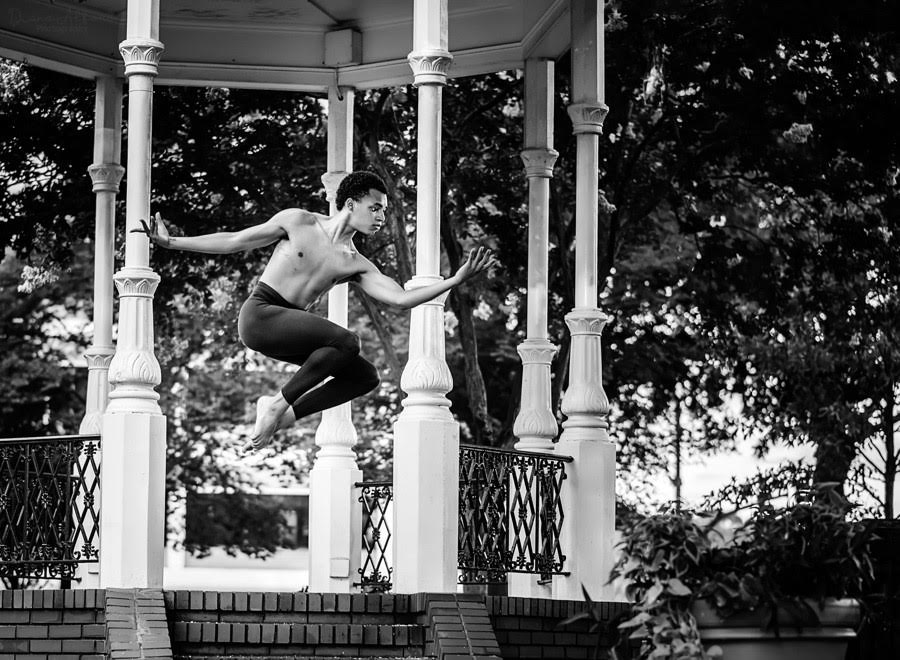
Soon after, Zion uploaded a video to the class Instagram account, of himself and other students performing dances they’d created to accompany the Black History Month showcase at the college. In the video, Zion moves fluidly, his limbs in sync with the other dancers. There’s softness and twirling and joy. When his classmates responded enthusiastically to his post, he uploaded more.
“I’m truly floored by your dance videos, Zion.” I said. “You need to put these out for the world to see. You’re super, super talented!”
“Thanks,” he replied. “I’ve been experimenting with my brother. Making these videos is helping me get through the pandemic. I hadn’t made videos like this before. I’m just really happy when I’m dancing.”
I told him that dance is a form of composition, just like an essay.
When you choreograph a dance, you have a beginning, middle, and end. You use scaffolding, you build, just like writing a paper. I told him that tapping into what he was excited about creating from that place of joy, could carry over into writing.
It helps you understand that you have something to say. I suggested that for his final paper, instead of just a written composition, he could write an essay accompanied by audio and visual components, including one of his dance videos.
For his final presentation, Zion composed a dance, created a video, and wrote a paper about it. In writing about his experience of being given permission to play, that is, to dance, Zion shared that he’d “always had the dance equivalent of writer’s block” when he tried to choreograph dances, but that for our class, he was finally able to come up “with a dance all by myself for the first time.” “Now,” he said, “the dance is just flowing out of me.” He thanked me for being “the kind of teacher who cares about the person in front of them” rather than seeing only “a student who has to be given a grade.”
In the video of the dance he choreographed and wrote about for our class, Zion danced alone, performing a dance he’d composed on his own, a first for him. In the video, he stands in his backyard, his arms swinging, a calm but joyful expression on his face, moving in short, precise bursts. He’s completely at ease, moving with grace, creating from his heart.
Works Cited
Bakhtin, M. M. Problems of Dostoevsky’s Poetics. University of Minnesota Press, 1984.
—. Rabelais and His World. Indiana University Press, 1984.
End Notes
1. One major tenant of Carnival is the crowning and subsequent de-crowning of the “Carnival king,” which symbolizes a shift in authority, an inversion, a role reversal. This suspension of power structures causes an internal shift within the carnival-goer that leads to a renewed sense of subjectivity. Although this inversion is temporary, it’s transformative in nature.
2. One of the most important aspects of Carnival is the idea that it provides freedom of interaction that wouldn’t have been possible due to the hierarchical barriers that normally separate populations. Not only are people of different socioeconomic and aristocratic backgrounds put in the same physical space, but their freedom to interact with each other open the doors to another figurative space – one that serves as a conduit for dialogue that wouldn’t otherwise occur. Bakhtin acknowledges that these spaces give birth to new, joyful forms of creation.
Judith Chriqui Benchimol holds a Master’s degree in Life Writing from University of East Anglia and is presently a Ph.D. student and nonfiction writing lecturer at Teachers College, Columbia University. She also teaches first-year composition at Marymount Manhattan College.

